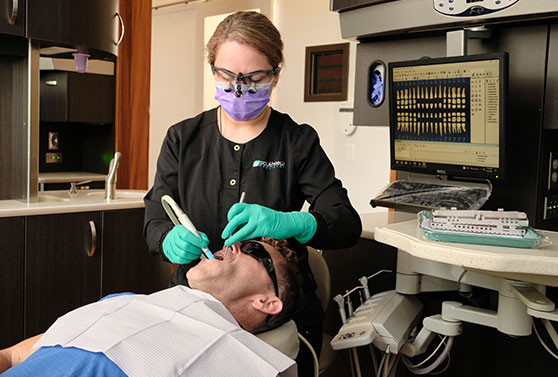The Ultimate Guide to Porcelain Veneers Washington DC: Enhance Your Self-confidence
The Ultimate Guide to Porcelain Veneers Washington DC: Enhance Your Self-confidence
Blog Article
Usual Inquiries Regarding Dental Veneers Addressed
Dental veneers have come to be a progressively popular option for those looking to enhance their smiles, yet several individuals stay unsure concerning different facets of their use. As we explore these usual inquiries, it becomes important to consider not only the advantages but also the ramifications of choosing for oral veneers in search of a more confident appearance.
What Are Oral Veneers?
Oral veneers are thin, tailor-made shells crafted from porcelain or composite resin that are developed to cover the front surface area of teeth. These dental prosthetics serve both functional and aesthetic objectives, giving a solution for various oral blemishes, including staining, chips, gaps, and imbalance. By adhering to the teeth, veneers can considerably boost the general appearance of a smile, creating an extra attractive and consistent look.
Porcelain veneers are especially preferred for their natural translucency and stain resistance, making them an optimal choice for people looking for lasting outcomes. On the other hand, composite material veneers are normally more economical and can be used in a single go to, however they may not provide the very same toughness as porcelain choices.
The decision to choose dental veneers usually comes from a desire for aesthetic improvement, however individuals must also consider elements such as the long life of the product, maintenance requirements, and the possible demand for tooth decrease (Low Cost Veneers). Eventually, dental veneers represent a versatile and efficient remedy for achieving a radiant smile, satisfying specific aesthetic requirements while advertising self-confidence and self-worth
How Are Veneers Applied?
The application procedure for veneers calls for careful planning and precision to ensure ideal outcomes. The treatment usually starts with a thorough examination, where the dental professional examines the client's oral health, talks about wanted outcomes, and identifies the suitable sort of veneers, whether porcelain or composite material.
Once the treatment plan is developed, the dental practitioner prepares the teeth by eliminating a thin layer of enamel, typically regarding 0.5 mm to 1 mm, to suit the veneer. This action is critical as it ensures a proper fit and protects against the veneers from appearing cumbersome - Dental Veneers. After prep work, impressions of the teeth are taken to produce personalized veneers that match the individual's unique dental structure and visual choices
While the permanent veneers are being produced in a dental lab, temporary veneers might be placed to protect the prepared teeth. Once the permanent veneers are all set, the dentist will thoroughly bond them to the teeth utilizing a strong dental adhesive.
What Are the Benefits?
In addition, veneers are understood for their sturdiness and resistance to discoloring contrasted to all-natural teeth. Made from top quality materials such as porcelain or composite material, they can keep their appearance for several years with correct care. This longevity makes them a practical financial investment in one's dental appearance.
Along with visual improvements, veneers can also add to enhanced dental wellness. By covering harmed or weakened teeth, they can provide added assistance and protection, helping to protect against more decay or wear and tear. This protective element can reduce the requirement for more substantial dental treatments in the future.

How Much Time Do They Last?
With appropriate care and upkeep, dental veneers can last anywhere from 10 to 15 years, making them a lasting service for enhancing one's smile. The longevity of veneers mostly depends upon the material made use of, the top quality of the first placement, and the client's adherence to dental health methods.
Porcelain veneers are recognized for their toughness and resistance to discoloration, commonly lasting closer to the 15-year mark when taken care of suitably. Composite veneers, while much more economical, may anchor require substitute earlier, frequently within 5 to ten years due to their vulnerability to put on and discoloration.

In addition, wearing a mouthguard during sporting activities or nighttime can provide additional security. Eventually, while veneers use a considerable visual enhancement, their durability is considerably influenced by the dedication to appropriate dental treatment and regular appointments with a dental specialist.
Exist Any Dangers?
Thinking about the transformative impacts of dental veneers, it's important to recognize the prospective risks connected with their application. While veneers website link can improve the appearance of teeth, the procedure involves the elimination of a slim layer of enamel, which can increase tooth sensitivity and susceptability to decay.
One considerable risk is the opportunity of incorrect positioning or fitting, leading to pain, bite misalignment, or perhaps damage to the underlying tooth structure. In addition, if the veneers are not preserved appropriately, they can become stained or broken gradually, demanding substitute.
Clients may also experience allergies to the materials utilized in the veneers, specifically if they have level of sensitivities to certain oral composites. Furthermore, while veneers are sturdy, they are not undestroyable; extreme pressure you could try this out from clinching or grinding can result in fractures.
It is vital for people to seek advice from a qualified oral expert to evaluate their individual threats and to adhere to aftercare instructions vigilantly. By understanding these risks, clients can make educated choices regarding their oral veneer therapy and ensure the longevity and success of their improvements.
Final Thought
In recap, dental veneers represent a useful cosmetic remedy for improving smiles, with factors to consider regarding their application, benefits, durability, and associated threats. Ultimately, informed decision-making concerning oral veneers can lead to sufficient aesthetic outcomes and improved dental wellness.
Oral veneers are slim, tailor-made shells crafted from porcelain or composite material that are created to cover the front surface of teeth. After prep work, impacts of the teeth are taken to create custom veneers that match the individual's special oral structure and aesthetic choices.
While the long-term veneers are being fabricated in a dental laboratory, short-lived veneers might be placed to shield the ready teeth. Once the irreversible veneers are all set, the dental expert will very carefully bond them to the teeth using a strong oral adhesive. Eventually, educated decision-making pertaining to oral veneers can lead to sufficient visual end results and enhanced dental health and wellness.
Report this page